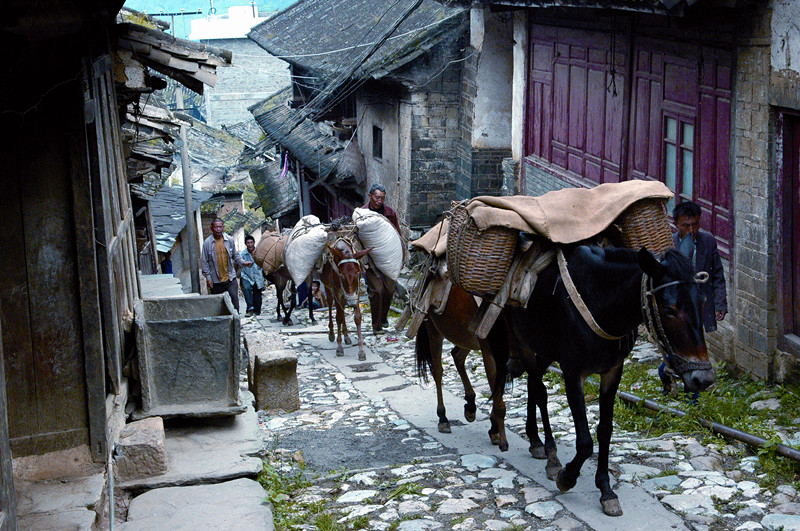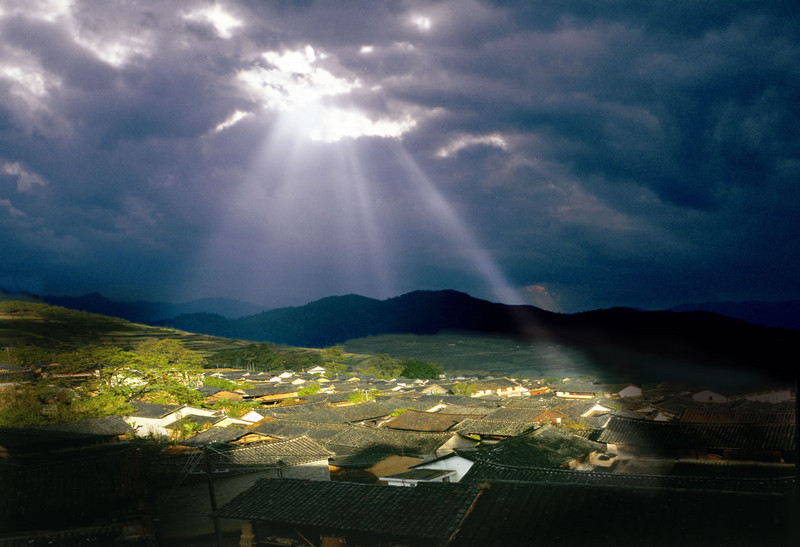Lushi Old Town in Fengqing County, Lincang

Chinese Name: 鲁史古镇
Chinese Pinyin: Lu Shi Gu Zhen
English Name: Lushi Ancient Town in Fengqing County
Type: ancient town
Opening Hours: all day
Recommended Visiting Hours: 1 day
Ticket: free
Area: 43o,ooo square meters
Location: Fengqing County, Lincang City, Yunnan Province
📍 Location & Best Season
Coordinates: Northeast of Fengqing County, Lincang City, Yunnan (云南省临沧市凤庆县东北部)
Altitude: ≈1,800 m | Established: 1598 (426 years old)
Climate: Avg. 15.1°C – year-round comfort
Best Time:
– Oct-Dec: Golden rice terraces + sea of clouds 🌾
– Lantern Festival (正月十五): Yi ethnic “Dage” dances & dragon parades 🐉
– Mid-Apr: Taste “Fengshan Spring Tips” from century-old tea trees 🍵

🚌 Getting There
| From | Route | Duration | Cost | Tips |
|---|---|---|---|---|
| Kunming | HSR → Yunxian Station → Carpool | 3.5h | HSR ¥145+ Carpool ¥60 |
Direct rides at Yunxian Station exit 🚐 |
| Fengqing Town | Self-drive (Fengxiao + Jieyang Rd) | 2h20m | Fuel ¥100 | Paved but winding – drive slow! 🛣️ |
| Fengqing Town | Public Bus | 2.5h | ¥30 | Hourly 7:30-16:30 |

🌟 Town Layout & Highlights (2h Walking Tour)
1️⃣ “3 Streets, 7 Lanes, 1 Square”
– Central Sifang Square (四方街) with radiating bluestone paths
– 600-year-old horse hoof marks on main street
2️⃣ Architectural Fusion
– Siheyuan (四合院): Luo Family Compound (Junchan Tea House旧址) – horse-riding corridors + frescoes
– Sanheyuan (三合院): Jiangnan-style courtyards with Bai ethnic eaves 🏯
3️⃣ Historic Sites
– Junchan Tea House: 1920s hub for Yunnan tea exports
– Xu Xiake’s Stay (1693): Staircase St. No.37 – wall poem fragments 📜
– WWII Supply Route: Key Tea Horse Road section
4️⃣ Cultural Experiences
– Hand-pressed tea cakes: ¥50 at Housuo Village workshop
– Yi “Dage” circle dance: Free nightly at Sifang Square 🎭
⛰️ Extended Itineraries
Fengqing County Day Trip
AM: Fengqing Confucian Temple → Qinglong Ancient Rope Bridge
PM: Drive to Lushi → Overnight in courtyard guesthouse
2-Day Cultural Immersion
Day 1: Lushi exploration + tea pressing
Day 2: Drive 40min → Gumuo Village (China’s Summer Retreat Town) → 5km Tea Horse Trail hike
🍲 Stay & Souvenirs
- Accommodation:
– Luo Family Inn: Antique carved beds (¥180-260) 🛏️
– Yunnan University Book Inn: Scholar-themed rooms (¥120) - Food:
– Fermented tofu fish stew (¥30/cauldron)
– Street rice cakes (¥5/bag from bamboo baskets) - Souvenirs: Hand-pressed tea cakes, Yi embroidered coasters
❗ Essential Tips
- Admission: Free (register for maintained courtyards)
- Photography:
– Bluestone lanes: Best light 7:00-8:30 AM
– Drones require advance permit - Connectivity: 4G coverage; Wi-Fi at guesthouses
- Eco-Rule: Carry trash out – no public bins! ♻️
✨ Why Visit?
Walk bluestone paths polished by centuries of horse caravans, touch fire-gable walls whispering Ming Dynasty secrets – where every stone echoes the Tea Horse Road’s legacy. Lushi isn’t just preserved history; it’s history that still breathes. 🪔

 7 Days GolfingTour
7 Days GolfingTour
 8 Days Group Tour
8 Days Group Tour
 8 Days Yunnan Tour
8 Days Yunnan Tour
 7 Days Shangri La Hiking
7 Days Shangri La Hiking
 11 Days Yunnan Tour
11 Days Yunnan Tour
 6 Days Yuanyang Terraces
6 Days Yuanyang Terraces
 11 Days Yunnan Tour
11 Days Yunnan Tour
 8 Days South Yunnan
8 Days South Yunnan
 7 Days Tea Tour
7 Days Tea Tour
 8 Days Muslim Tour
8 Days Muslim Tour
 12 Days Self-Driving
12 Days Self-Driving
 4 Days Haba Climbing
4 Days Haba Climbing
 Tiger Leaping Gorge
Tiger Leaping Gorge
 Stone Forest
Stone Forest
 Yunnan-Tibet
Yunnan-Tibet
 Hani Rice Terraces
Hani Rice Terraces
 Kunming
Kunming
 Lijiang
Lijiang
 Shangri-la
Shangri-la
 Dali
Dali
 XishuangBanna
XishuangBanna
 Honghe
Honghe
 Kunming
Kunming
 Lijiang
Lijiang
 Shangri-la
Shangri-la
 Yuanyang Rice Terraces
Yuanyang Rice Terraces
 Nujiang
Nujiang
 XishuangBanna
XishuangBanna
 Spring City Golf
Spring City Golf
 Snow Mountain Golf
Snow Mountain Golf
 Stone Mountain Golf
Stone Mountain Golf















